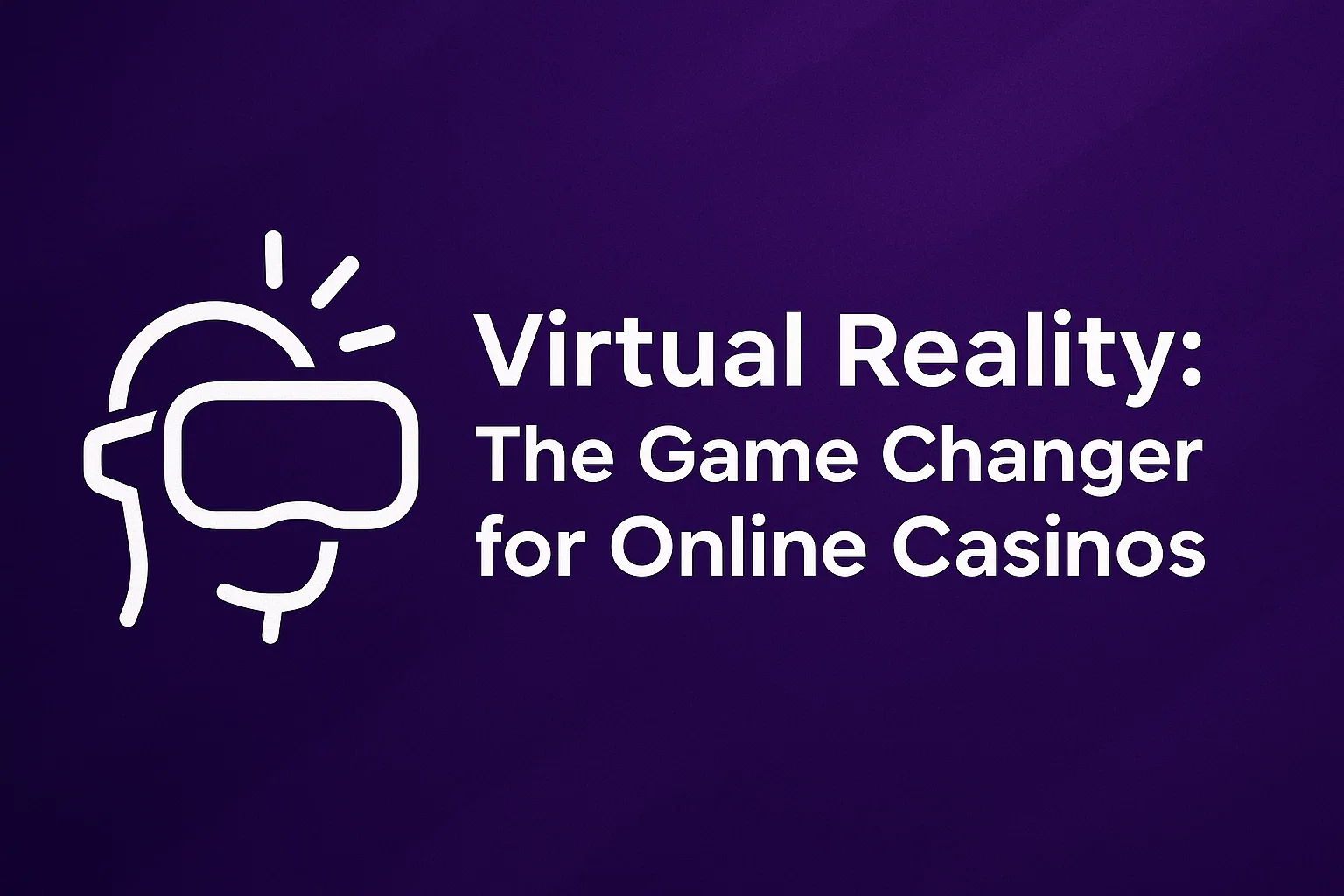Virtual Reality: The Game Changer for Online Casinos

Gambling has been around for thousands of years. Archaeologists found six-sided dice in Mesopotamia more than 5,000 years ago. In China, several card games were already popular in the 9th century, and the first casino was established in Venice in 1638.
Games of chance always had their following at fairs and celebrations all over the world. With the onset of the digital age, a whole new form of gambling emerged. Bookmakers were the first to offer their customers the ability to place bets online. Online casinos were soon to follow, paving the way for what became the best casinos in the digital age.
Microgaming developed the first fully functional software. With the internet growing faster, the range of games expanded, which resulted in the development of live casinos. There, clients could sit at a table with professional dealers and croupiers via HD stream or get involved in interactive game shows. The next revolution is waiting around the corner: with the help of virtual reality, players will soon be able to bring the real casino into their living room.
What Is Virtual Reality?
Irrefutably, one of the most promising technologies on offer is virtual reality (VR), typically mentioned in conjunction with augmented reality. VR is already seeing applications in many areas, from driving simulation safety training to computer games in a virtual environment. Augmented reality (AR) overlays information on real environments—think of the offside line in a football match or navigation arrows on digital maps. One of the best examples was Pokémon GO, where players could catch virtual animals superimposed onto real streets and parks through their phone screens.
Online Casinos in Transition
The majority of big providers know that it is no longer just about gambling. Players at online casinos nowadays must be entertained. That's one reason why live casino game shows like Deal or No Deal or Monopoly Live have been so popular.
A simple welcome bonus is no longer enough to attract today’s players. Many casinos now organize tournaments where players compete against each other on leaderboards. Others offer missions that can be completed for rewards. These prizes range from free spins to cash amounts in the five-digit range.
To illustrate, here are some trends shaping the online casino experience today:
- Competitive tournaments with real-time leaderboards
- Missions and achievements that reward player progress
- Immersive live game shows derived from television formats
Even this model is starting to see its end. Additional pressure for the South African operators is being created by the new gambling legislation. South African-licensed casinos are no longer allowed to offer table games such as electronic blackjack or roulette. They have also banned live games and game shows. Since the South African gambling industry is one of the largest in the world, operators must innovate and develop new incentives. Virtual reality appears to be one of the most promising technologies to breathe fresh life into online casinos.
What to Expect from VR Casinos
VR casinos, developed specifically for virtual reality, offer players an experience so realistic that it comes close to visiting a real casino. With the help of advanced VR headsets, players can enter a virtual casino lobby, move into different gaming rooms, and enjoy an authentic atmosphere with visual effects and immersive sound.
There are also rooms for slot machines, as well as elegant classics like roulette, blackjack, and baccarat. There are poker tables where participants can compete against one another privately. There is a lounge area where players can hang out to socialize or simply to bask in the atmosphere.
Advantages of VR Casinos
- Appears, sounds, and feels precisely the same as visiting a traditional land-based casino.
- Players can win real money in VR casinos.
- Multiplayer games at slots or tables offer competition against real opponents.
- Socialization through live chat and live voice chat.
- New slots, table games, and game shows are regularly added.
- Games are accessible at any time from home.
- No entry fees, cloakroom fees, or drink costs.
- Member-only bonuses and rewards.
- No travel or accommodation costs.
- 24/7 access with no restrictions.
- Higher payout percentages on many games, especially online slots.
Not All That Glitters Is Gold
However much these advantages are persuasive, there are yet some challenges. The biggest reason why only a handful of providers currently support VR is money. It is only the big operators that can afford to invest in developing a virtual world.
Virtual casinos provide the platform, but the games themselves are made by developer studios. That makes it the responsibility of software providers to design VR-compatible games. The majority of online casinos feature over 50 game providers, and it's costly to integrate all of them into one VR system. Creating a competitive online slot already requires a lot of investment—creating the same game in 3D multiplies those costs several times. Small studios simply can't cope. A possible solution can be modular programming interfaces created by large studios, which could be used by small developers under license.
There's also the issue of player hardware. While gamers are often willing to spend large amounts of money on the latest technology, online casino players are more interested in winning money than in spending large amounts on hardware. That's why the majority still prefer playing slots or table games using standard equipment instead of spending money on high-end VR headsets. Operators would need to invest initially and provide enough incentive to compel the players to make the switch.
The Future Outlook
One thing is for sure: VR casinos are coming. The price of VR headsets is decreasing, and with the advent of 5G, VR on mobile will soon be a reality. When that is the case, VR casinos could very well be a game changer for the iGaming industry.
